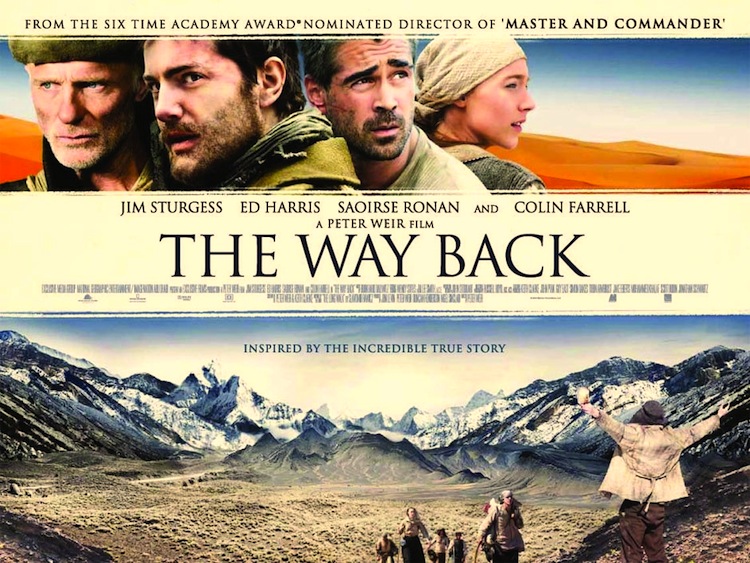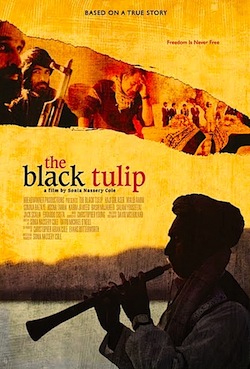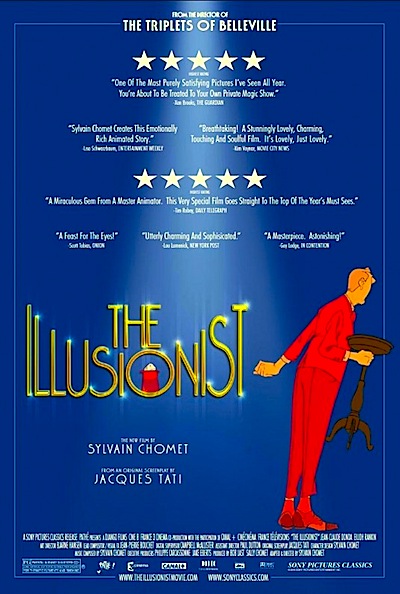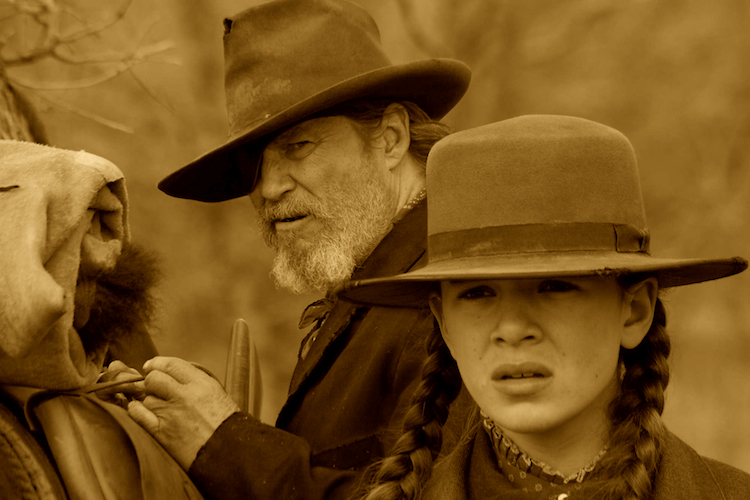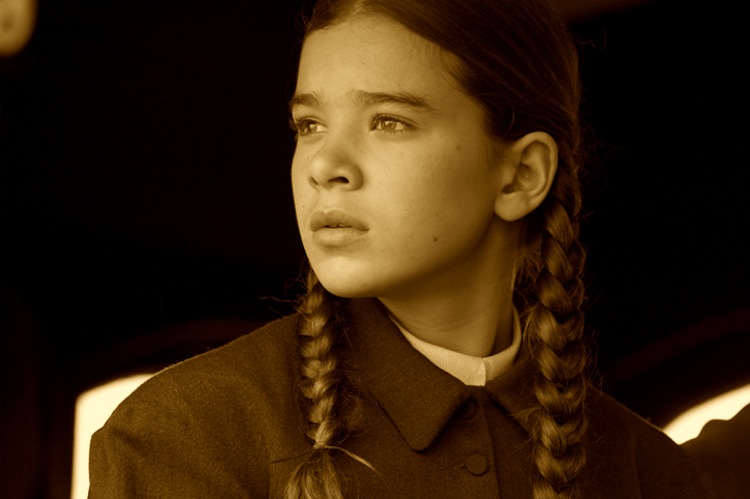By Joe Bendel. They endured harrowing extremes, including Siberian winters, blistering deserts, and utopian ideologies. In 1940, a Polish POW and six assorted political prisoners walked away from their gulag. Their ultimate destination was India. A harrowing tale of physical and spiritual survival adapted from Slavomir Rawicz’s novelistic memoir, Peter Weir’s The Way Back briefly opens an award qualifying engagement this week in Los Angeles, in advance of its regular January theatrical run.
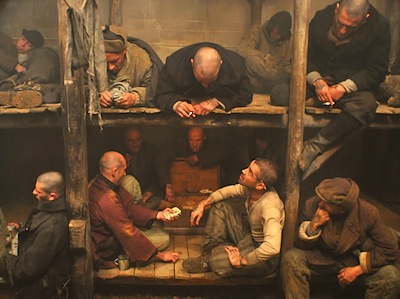
1940 was a bad year to be a Pole in Russia. It was also pretty miserable being a Russian in Russia, unless your name was Stalin. Janusz, a Polish Cavalry officer, was fighting the invading Nazis from the West. The Russians invading from the East branded him a spy (using his “contact” with the Germans as a staggeringly hypocritical pretense) and imprisoned him in a Siberian work camp. Here he meets a broad cross-section of Soviet society swept up in Stalin’s purges.
Janusz quickly befriends Khabarov, a Russian actor sentenced for his overly sympathetic portrayal of an aristocrat. He also comes to respect Mr. Smith, an American engineer lured to Russia during the Great Depression with promises of work, but he is instinctively distrustful of Valka, one of the “Urki” (a.k.a. “Thieves By Law”), the career criminals who run the camps at the barracks level. However, they let the thug to join their escape attempt because of the knife he brings to the party. Along the way they also reluctantly allow a girl to join their ranks: Irena, an orphan of the purges. Though Smith fears she will slow them down, she seems to be the only one able to draw the men out of their prison-hardened shells.
The plan was simple—head towards Lake Baikal with the only rags they had on their backs and then improvise from there. Of course, there were plenty of complications, like food and shelter. It is hard to imagine a more daunting landscape than the one they faced, including the Ghobi desert and the Himalayas – and this long trek was not the original idea. Yet, when they realized Mongolia had also succumbed to the ideology of Communism, they had no choice but to press on.
While Way works very well as a man against nature film, it also captures the realities of the Stalinist era quite forthrightly. For instance, we see the abandoned remnants of Buddhist monasteries razed by the Communists, which echoes the experiences of Voss, a Latvian Orthodox priest, whose soul was essentially destroyed along with his church.

With its forbidding vistas and scorching sunlight, Way is a perfect vehicle for director Weir’s visual sensibilities. The audience really does feel like it is seeing remote corners of the globe never previously trodden by human feet. Yet the film also features some considerable performances. Although Jim Sturgess has appeared in some high profile screen projects in the past, none of his previous work has been of this caliber. It is hard to be the “good guy” among an ensemble cast, but he actually makes Janusz the most memorable of the escapees, effectively establishing the deeper motivations fueling his superhuman drive. Ed Harris is also well cast as Smith, nicely expressing his guilt, resentment, and fundamental decency. Really, nearly the entire cast becomes one with their characters, blending seamlessly into this epic story of average people – except for Colin Farrell, who stands out a bit awkwardly as Valka.
Way might be a story of rugged survival among the elements, but it is really part of a larger man-made tragedy. Weir nicely drives that point home with his evocative final payoff. A finely executed, emotionally engaging human drama absolutely worthy of award consideration, Way begins a highly limited LA run this week at the AMC Covina.
Posted on December 30th, 2010 at 11:06am.
